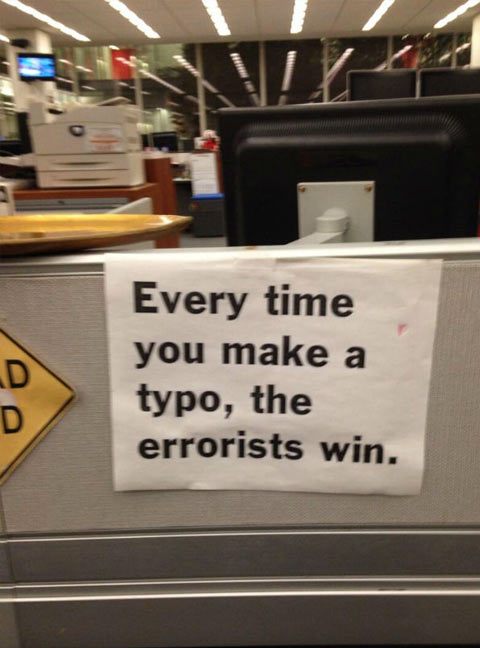
Philadelphia, a major decision on gay rights and religion issued in June, were changed three times to make 10 alterations. Of the 22 decisions in argued cases issued in June, for instance, eight required revisions, resulting in 30 separate changes. Starting in 2015, the court has been noting revisions on its website. Lazarus, a law professor at Harvard, who disclosed that the justices had long been revising their opinions without public notice, sometimes amending or withdrawing legal conclusions. That is a consequence of changes instituted by the court in response to a 2014 article by Richard J. These days, the Supreme Court is much better about publicizing its errors.
#TYPO MISTAKE PROFESSIONAL#
Blackmun said the court operated “on a strange and ‘reverse’ basis, where the professional editing is done after initial public release.”

In an internal memorandum in 1981, Justice Harry A. Burger in 1984, “we actually operate a system that is completely at odds with general publishing practices.” I know it’s subtle, but that’s a big difference.”īy making a “considerable number of corrections and editorial changes in the court’s opinions after their announcement and prior to their publication in the United States Reports,” a court official wrote to Chief Justice Warren E. “The way it works is that the government has the right to place reasonable restrictions on your use of property. And this is a big one, because it supports the almost commonly held notion that you have a right to do on your property what is reasonable.” “And they have been very successful almost every time in pushing new theories. “It gave an additional argument to the private property rights movement,” he said. In all, though, Professor Wolf said, the oft-cited mistake served to amplify one view of property rights.

“We’ll never know the answer to that,” he said, “though if we have judges who favor the private property owner at the expense of the government, I think it could be more than just icing on the cake.” He said it was impossible to know whether the incorrect statement affected the outcome in the cases in which judges considered or cited it. “It is a real word,” Professor Wolf said in an interview.


 0 kommentar(er)
0 kommentar(er)
